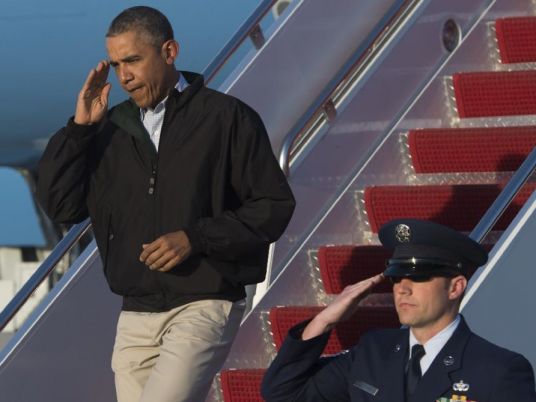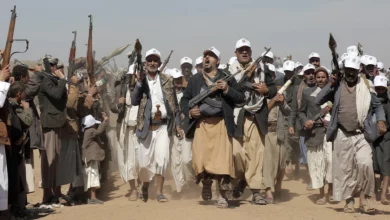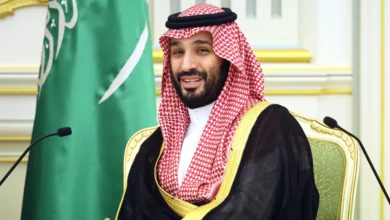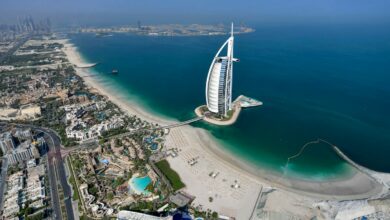
A US-supplied missile shield to protect Gulf nations against Iranian attacks will take years to complete, requiring a step-up in regional trust, more U.S. sales of sensitive weapons, and intensive US training to avoid mishaps in the volatile region.
A renewed joint commitment to build the regional defence system was one of the few firm outcomes of Thursday's Camp David summit between President Barack Obama and Gulf allies, which were seeking fresh U.S. defence pledges ahead of a possible nuclear deal they fear will empower arch-rival Iran.
Past efforts have stalled due to tension and mistrust within the six-nation Gulf Cooperation Council (GCC) but US and Gulf officials say the time is now ripe to push ahead as Arab nations mount more joint military missions.
A joint statement following the summit said that the GCC states were committed to developing a ballistic missile defence capability, including an early warning system, with US technical help. Washington pledged to fast-track arms transfers to the GCC states and to send a team to the region in the coming weeks to discuss the details.
The Gulf nations fear that the sanctions relief that would accompany a nuclear deal with Tehran due by June 30 could revive Iran's economy and enable it to acquire more accurate and reliable missiles.
An integrated defence system would allow Gulf countries to better repel an Iranian attack, stitching together their radars and interceptors to counter a range of different missiles.
The system would use US early-warning satellites and a mix of US and Gulf radars to detect the launch of an enemy missile and fire a ground- or sea-based missile to destroy it far above the earth.
CLOSER SHARING NEEDED
Lockheed Martin Corp, Raytheon Co. and Northrop Grumman Corp would be key contenders to build a central command-and-control system for the shield since they already do similar work for the U.S. military and key allies.
The biggest challenge to making the shield work would be securing a broad agreement on the rules for dealing with any threats, said Anthony Cordesman, a senior analyst with the Center for Strategic and International Studies.
"You have to work out the entire engagement structure before the first missile is ever launched," Cordesman said.
Getting to that point will require unprecedented agreements between the US military and the GCC, and among the often rancorous Gulf allies, to share sensitive data to avoid the risk of a friendly aircraft being shot down by mistake, experts said.
Intensive US-led training would also be vital to minimize the risk of mishaps, US officials say.
The US military already has 10 Patriot missile batteries to defend against short-range ballistic missiles in the Gulf region and Jordan, as well as a powerful AN-TPY-2 radar system to scan for missile launches, according to US officials.
The Gulf countries are upgrading their existing Raytheon Patriot systems to incorporate new PAC-3 missiles built by Raytheon and Lockheed Martin Corp, and are starting to buy wider-area and longer-range systems like the Terminal High Altitude Area Defense (THAAD), built by Lockheed.
Saudi Foreign Minister Adel al-Jubeir told reporters in Washington this week that Gulf countries would need new ground-based networks and computer terminals to manage those systems.
He said the Gulf countries also wanted longer-range options like the Raytheon SM-3 missile, which has not yet been released for export to the region.
Washington has balked at selling a land-based Aegis combat system to deal with missile threats and any associated SM-3 missiles to Gulf countries, largely because such a system would be best suited to dealing with threats outside the earth's atmosphere that are beyond Iran's capability, Cordesman said.
Washington's decision in December to allow U.S. arms sales to the GCC as an organization – similar to its arrangement with NATO – helped pave the way for progress on integrating missile defence and maritime security systems.
“That’s a huge step in the right direction,” said a US official, who was not authorized to speak publicly.
Cordesman said Raytheon's new SM-6 missile could prove useful to address Gulf concerns since it could address threats inside the earth's atmosphere as well as outside.
US officials had no immediate comment on whether the Gulf countries had made any formal request for the SM-6 system.
Al-Jubeir cautioned against expecting rapid progress on missile defence integration.
"Those are complicated systems that take time to acquire and then take time to put in place," he said. "You can’t buy these things off the shelf and take them home the day you buy them … One has to come before the other."




